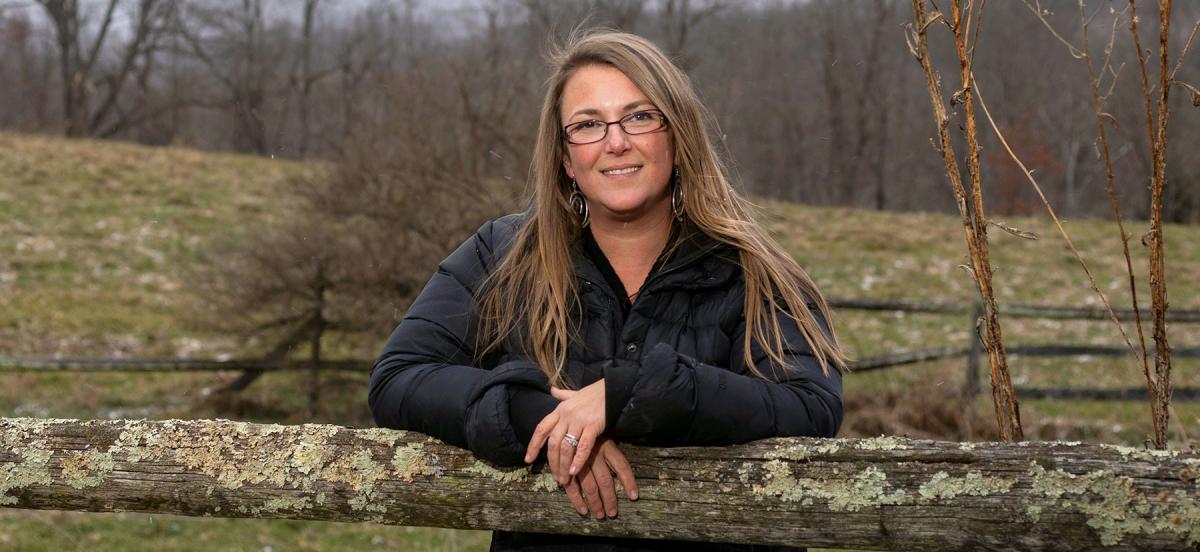Math as a Civil Rights Issue

Details
As a math instructional coach in West Virginia, Joanna Burt-Kinderman ’98 is working to expand public access to high-quality math education across the state.
Joanna Burt-Kinderman ’98 never planned on being a mathematics trailblazer. When she left tiny Hillsboro, W.Va., to attend Haverford, Burt-Kinderman was focused on making her mark through social justice or community organizing. But a first-year calculus class with Jeff Tecosky-Feldman showed her creativity in teaching math that she’d never experienced in a classroom. At the same time, she read Radical Equations: Civil Rights From Mississippi to the Algebra Project, by Robert Moses and Charles E. Cobb, in an education class. “Bob Moses wrote that access to a solid math education is the civil rights issue of our time,” explains Burt-Kinderman. “It’s a passport to full citizenship for disenfranchised people. It’s about justice and equity.”
Those two classes inspired her decades-long career, first as a math teacher and now as her school district’s math instructional coach in West Virginia’s Pocahontas County, where she is working on developing two new initiatives. One will create a network of the state’s best math teachers and leverage their ideas to improve math teaching statewide. The other is focused on supporting and retaining more rural, first-generation students in the STEM pipeline.
Her work has brought interest from across the state as well as national recognition from Education Week, which cited Burt-Kinderman as one of its “Leaders to Learn From” for 2019. In early April, she returned to Haverford to give a talk, sponsored by the Center for Peace and Global Citizenship (CPGC) and the Mathematics Department, on math and civil rights.
“There are so many mandates and dictates in the classroom, and we need students and teachers to question and hypothesize more,” says Burt-Kinderman. “So we ask teachers, ‘What do we want to be better at?’ and then we try something different. … We look at what the research says, try new strategies, and see how it works.”
Burt-Kinderman started her own teaching career at a Savannah, Ga., private school and went on to teach math at a community college and in public schools. For a time she served as program director at High Rocks, the education and leadership institute for West Virginia girls founded by her mother, Susan Burt. (In 2005, Burt reached out to Haverford for help with staffing, and since then High Rocks has become an ongoing internship opportunity for students through the CPGC.)
Ten years ago, Burt-Kinderman moved back to Pocahontas County with her husband and two daughters, and now lives in the house she grew up in.
In a state where teachers are often underpaid and need second jobs, and where some high schools don’t have a single certified math teacher, Burt-Kinderman says she’s doing the most exciting work of her life.
“There’s wide consensus that your high-school math education is either a barrier or a promoter of possibility in life,” she explains. “If you think of all the science and tech jobs now available, they all hinge on course work that depends on successfully completing first-year calculus, which is impossible without a strong high-school math background. How can school be the pillar of equality that it’s supposed to be, if we aren’t giving our children equitable experiences?”
More on Burt-Kinderman’s work: problematizingmathteaching.com.



